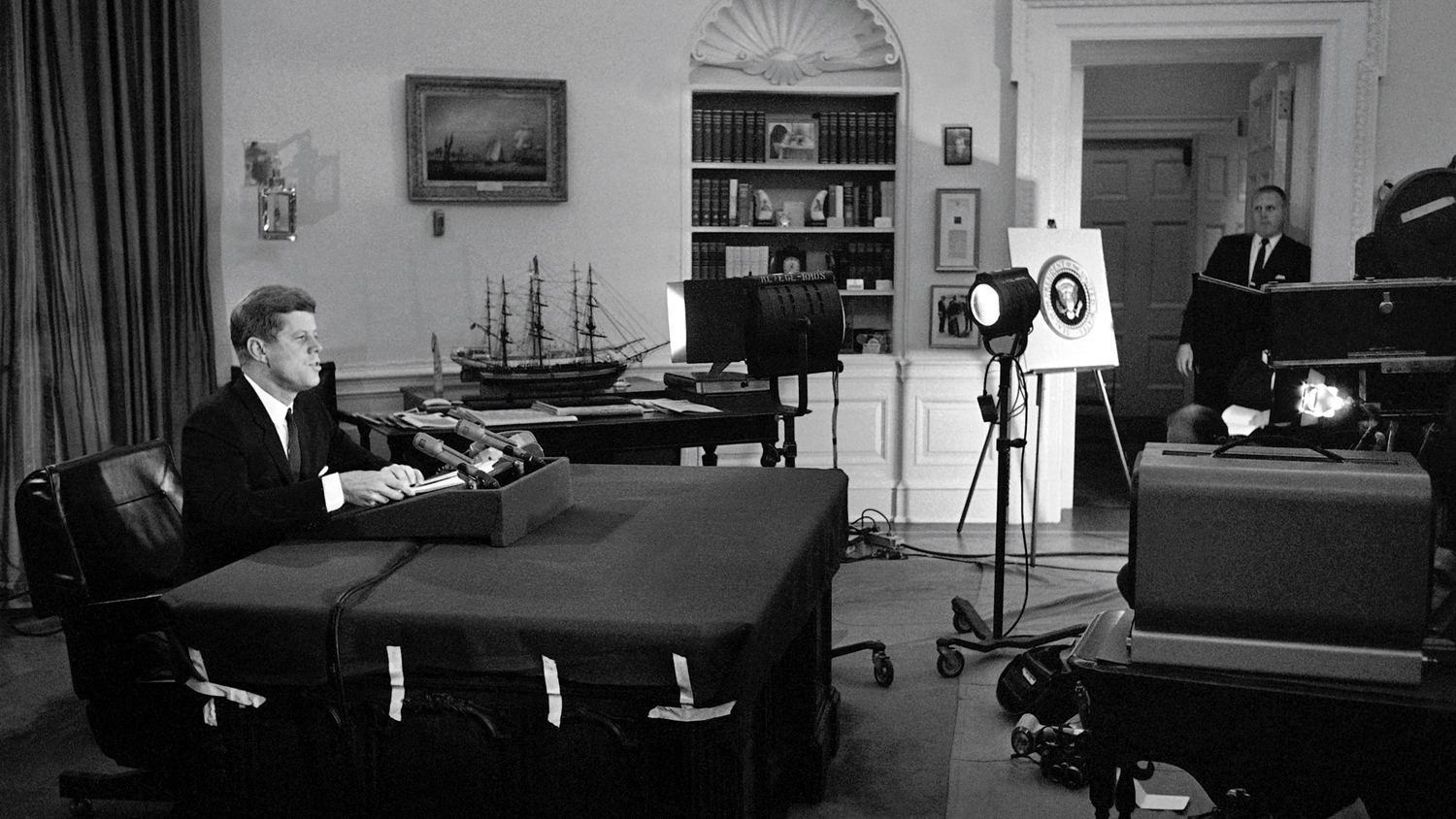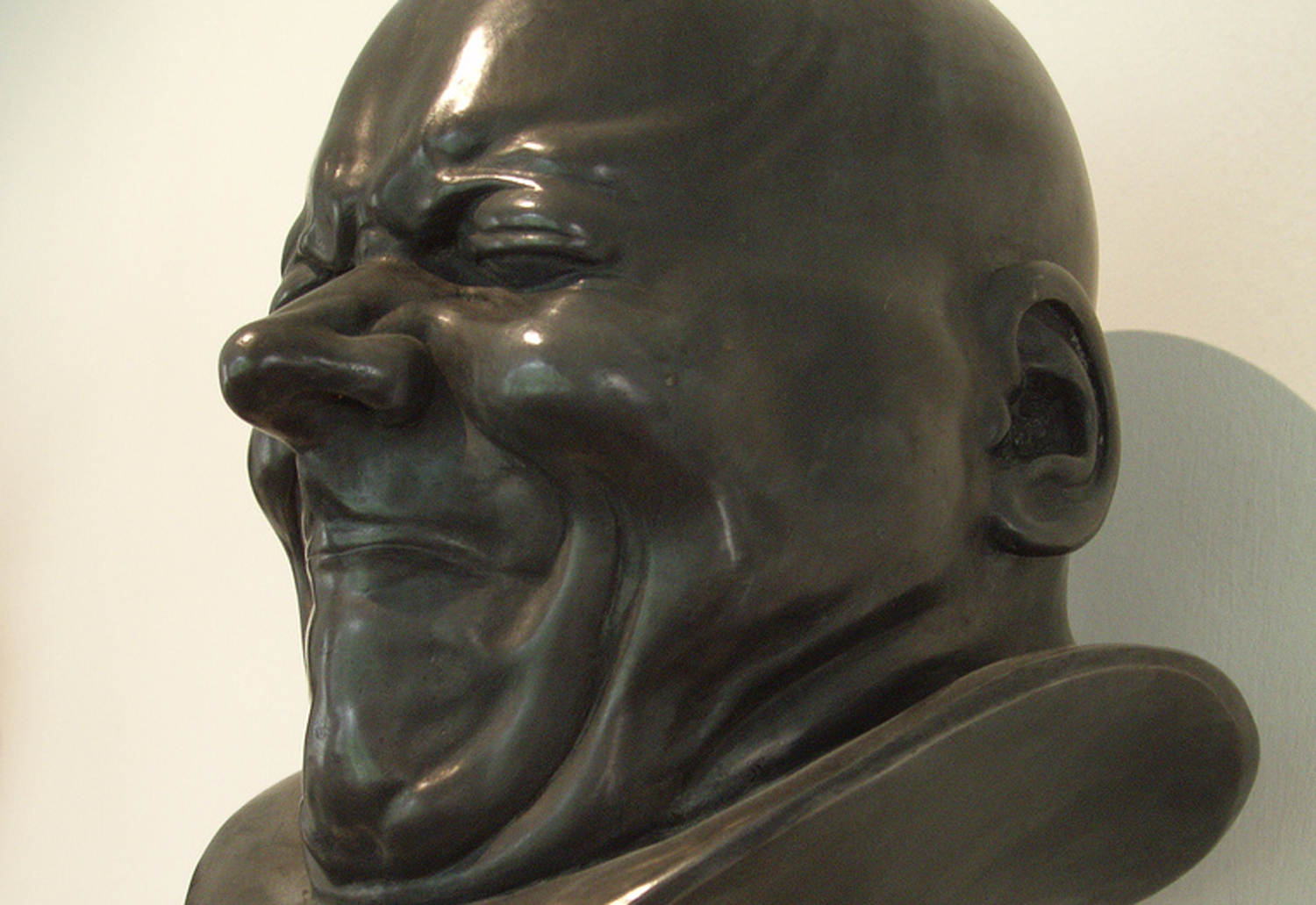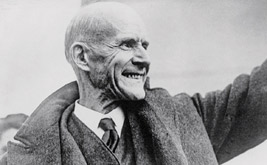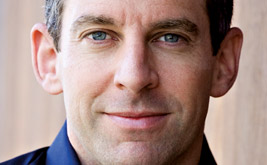
Mistakes Get Made Mistakes Get Made
Democracy floats on currents of change. Is it ever capable of managing them?
Jan 21, 2015 / Books & the Arts / Jackson Lears
Letters Letters
Keep talkin' happy talk… till the fat lady sings…
Dec 18, 2013 / Our Readers, Jackson Lears, and Eric Alterman

Get Happy!! Get Happy!!
For Margaret Thatcher as for today’s happiness industry, there is no such thing as society.
Nov 6, 2013 / Books & the Arts / Jackson Lears

Pariahs’ Progress: On Isolationism Pariahs’ Progress: On Isolationism
For Christopher McKnight Nichols, isolationists were cultural cosmopolitans who distrusted the impact of empire.
Aug 29, 2012 / Books & the Arts / Jackson Lears
Letters Letters
‘Overdose of Enthusiasm’ Arlington, Mass. John Nichols’s “The Post-Wisconsin Game Plan” [May 30] highlights some positive anti-corporate initiatives by the California Nurses Association (CNA); the Firefighters; my own union alma mater, the Communications Workers of America; and the Service Employees International Union (SEIU). I would caution about an overdose of enthusiasm for SEIU’s “Fight for a Fair Economy,” however. On paper, this campaign looks fine. Who on the liberal/left could object to any well-written blueprint for “mobilizing low-wage workers—be they union members or not” or “channeling anger about jobs into action for positive change”? Unfortunately, there’s a wide gap between union rhetoric and reality. Past organizational behavior may be more predictive of future performance than current pronouncements. See, for example, the case of new SEIU president Mary Kay Henry, whose “voice” Nichols finds to be so “calm” and “thoughtful.” Before taking over from Andy Stern a year ago, Henry was part of the international union wrecking crew that laid waste SEIU’s membership base in California in early 2009, leaving many rank-and-filers little inclined to go knocking on anyone’s door “to build mass movements of low-income and working-class people.” When Henry and other SEIU officials in Washington removed the elected leaders of the 150,000-member United Healthcare Workers-West, without just cause, and put UHW’s local under trusteeship, they triggered a series of disastrous inter- and intra-union conflicts. These fights consumed more than $140 million in dues money, when everyone’s contribution was added up. In California thousands of SEIU-represented “working-class people” were forced to mobilize against their own national union while fending off the attacks of private and public sector employers. Nichols further strains our credulity when he highlights the membership engagement insights of “veteran organizer Jane McAlevey.” Henry and McAlevey both served on the SEIU executive board that rubber-stamped Stern’s takeover of UHW, applauded his costly attacks on CNA and the Puerto Rico teachers union (FMPR) and then tried to cannibalize UNITE-HERE, triggering further defections from Change to Win, the SEIU-initiated labor federation (now down to four members). The idea that a union with this troubled and divisive track record can simply reinvent itself as a new labor vanguard is highly questionable. Let’s remember that SEIU was first going to save us with its New Unity Partnership in 2004. A year later, it was Change to Win to the rescue. After that, what we needed was Obama and a $10 million SEIU venture called “Change That Works” to hold Democrats accountable. Now “Fight for a Fair Economy” is the key? By all means, we should fight for economic justice, on the job and in the community, with any helpful labor allies. But recent history has shown that business union rebranding, internal dysfunction and organizational attention deficit disorder foster little “positive change” or political “staying power.” STEVE EARLY The Empathy Gene Detroit, Mich. Jackson Lears’s critique of Sam Harris’s books [“Same Old New Atheism,” May 16] gratuitously slams all of science. I teach the “parascience” of evolutionary psychology. Lears’s criticism of it is shopworn and easily refuted. No such thing as human nature?—ridiculous given the extensive influence of genes on human behavior. Adaptationist hypotheses not falsifiable? Many have been refuted. Learning how our prehistoric ancestors lived means we must live the same way? What evolutionist advocates for resuming hunting and gathering? If we progressives disdain science, we yield its power to the less fastidious conservatives. GLENN WEISFELD Martinsburg, W.V. Ethics is born of the ability to empathize. Some have it and some don’t. We tend to use religion or psychology or philosophy to justify what we are already inclined to do. The men who flew planes into buildings on 9/11 lacked empathy, and Sam Harris, apparently, does as well. In New Orleans, a black queen told William Burroughs, “Some people are just shits, honey.” AUSTIN PORTER Madison, Va. Jackson Lears has effectively identified Sam Harris’s errors. Contrary to Harris’s claim—that science can solve humanity’s ethical problems—lies the philosophical and scientific fact that the logic driving the brain/body, essentially the physical laws of nature, cannot explain the motives behind human behavior. Spinoza, who is acknowledged as the philosopher of science, makes it clear that even though body and mind are simply two different ways of looking at the same thing, the laws that govern the body cannot explain the flow and connectivity of ideas. Harris assumes the opposite, that some physical function of the brain can be analyzed to determine what people ought to be doing with their lives. His error is easily demonstrated. Even if there were, for example, a “compassion gene,” that gene would function pretty much the way all hardware does. We know how nuts and bolts work, but from their physical nature we cannot determine the function of the things they fasten. Similarly, we can say the brain is a data-processing engine, but even a full knowledge of how it works would tell us nothing of the meanings of the data being processed. We will not know from that gene what virtues we should love. Our future thus lies in the hands of sociologists, historians, political scientists—all those who strive to understand the real forces that empower us in our human struggle. The physical laws that determine how the brain functions assure that the understandings these humanist searchers are able to derive will be encoded in our neurons and thus drive our behavior. This fact—and it is a fact—explains both the joys and sorrows we have encountered in our history. Harris got one thing right: the brain processes errors as perfectly as it processes truth; for that reason we must strive to get our ideas straight. For whatever we decide the truth to be shall determine how we act. Harris would have us wander the brain’s labyrinth, vainly searching for the truth. The only truth we will find there is the truth of how the brain works. And that will not move us one nanometer closer to understanding life itself. FRANKLIN LONZO DIXON JR. Author, Spinoza’s God Lears Replies RINGOES, N.J. Far from attacking “all of science,” as Glenn Weisfeld charges, I simply questioned scientific claims that are based on conceptually flawed designs or empirically weak evidence—such as just-so stories or statistical results that turn out not to be replicable. These problems have afflicted work in the behavioral sciences (including “evolutionary psychology”) and have undermined positivist pretensions to certainty. The difficulties become especially marked in efforts to construct a science of ethics. I appreciate Frank Dixon’s (and Spinoza’s) elaboration of my argument on this matter. JACKSON LEARS No Nicknames, Please Re Nik Steinberg’s June 13 “The Monster and Monterrey”: Nuevo León’s governor’s full name is Rodrigo Medina de la Cruz.
Jun 1, 2011 / Our Readers and Jackson Lears

Same Old New Atheism: On Sam Harris Same Old New Atheism: On Sam Harris
Scientists, Sam Harris writes, are the saints of circumspection. If that’s true, then with his writing on religion and morality Harris breaks the mold.
Apr 27, 2011 / Books & the Arts / Jackson Lears
The Thought Experimenter The Thought Experimenter
A new biography of William James portrays a man who made a brilliant career of asking tough questions.
Feb 8, 2007 / Books & the Arts / Jackson Lears
Keeping It Real Keeping It Real
In Songs of Experience, Martin Jay examines modern debates over the relationship between theory and the lived world.
May 24, 2006 / Books & the Arts / Jackson Lears
